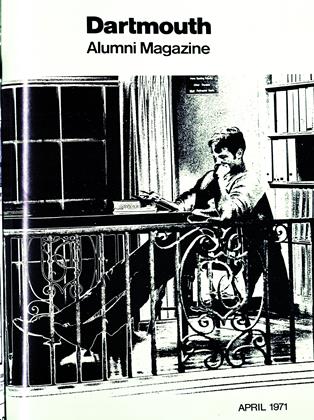By Thomas Vargish (AssociateProfessor of English). Oxford: at theClarendon Press, 1970. 191 pp. 45s.
Professor Vargish's study addresses itself to Newman's epistemology, his theories and assumptions concerning knowledge, thought, and perception—in short, his "philosophy of mind." Living in the age of Freud, we are apt to identify psychology with the unconscious. Newman's contemporaries were by no means unaware of subconscious motives, but, as Vargish points out, their science of mind was primarily concerned with problems of consciousness. And of these problems, none was more central to the age than the conflict of reason with faith.
As a young priest in the 1830s Newman could see the "dogmatic principle," on which in his view depended both the visible church and the salvation of the individual soul, succumbing to a corrosive rationalism inherited from the sceptical eighteenth century and reinforced by the triumphant industry and science of the nineteenth. This principle of "liberalism," as Newman called it, spread in his lifetime to infect every sphere of human activity. To counteract it, he was forced to devise an anti-rationalist philosophy of extraordinary subtlety and strength. Aware that his deepest impulses could not be traced to the workings of reason, Newman sought elsewhere. Attacking reason at its weak points, he painstakingly constructed his theory of Assent and illustrated it in treatises, novels, sermons, letters, and the great Apologia pro Vita Sua.
Professor Vargish reconstructs the theory from the mass of Newman's published and unpublished writings. His first chapter sketches a brief intellectual background; later chapters explain the philosophy of mind and seek its traces in the educational writings and in the novels and autobiography. The subject is not an easy one: Vargish is writing about a thinker who wrote about thinking, with consequences sometimes labyrinthine. But the argument is well worth pursuing despite occasional aridities. First, because Vargish has taken exceptional care to see that we know where we are at all points; his organization, intrinsically firm, is bolstered by lucid summaries and brightened by flashes of eloquence. Second, because the epistemological thread justifies Vargish's claims by leading into the heart of Newman's work. None of the major writings fails to contribute in some degree to the theory of Assent, or to be illuminated by it.
Finally, because the author quite rightly refuses to limit the scope of his inquiry to Newman's epistemology. Some of Professor Vargish's most telling points have to do with Wordsworth, with J. S. Mill, with university education, with the largest implications of Newman's career. For what strikes the careful reader is not only Newman's importance for his own age, but his relevance to ours. What we call liberalism, everywhere under attack, might well echo the prayer that Coleridge inspired in J. S. Mill: " 'Lord, enlighten thou our enemies'. . .
give acuteness to their perceptions, and consecutiveness and clearness to their reasoning powers: we are in danger from their folly, not from their wisdom." The modern liberal could ask for no antagonist more stimulating than John Henry Cardinal Newman. And to the great churchman's work Professor Vargish has provided a splendid introduction.
Assistant Professor of English, DartmouthCollege, 1961-1963, Mr. Cornell, author of Kipling in India, is now Lecturer in Englishand Comparative Literature and AssistantChairman of that department at ColumbiaUniversity.
 View Full Issue
View Full Issue
More From This Issue
LOUIS L. CORNELL
Books
-
 Books
BooksAPPLIED PSYCHOLOGY
May 1934 By C. N. Allen -
 Books
BooksJUSTICE IN RUSSIA
December 1950 By DIMITRI VON MOHRENSCHILDT -
 Books
BooksTHE FRANTIC PHYSICIAN,OR THREE DRAMS OF MATRIMONIUM,
December 1935 By E. B. Watson '02 -
 Books
BooksFlood Tide
May 1918 By M.J.F. -
 Books
BooksTHE TRUMPETER OF KRAKOW
December, 1928 By W.R.Pressey -
 Books
BooksWINNERS
November 1933 By William A. Eddy









